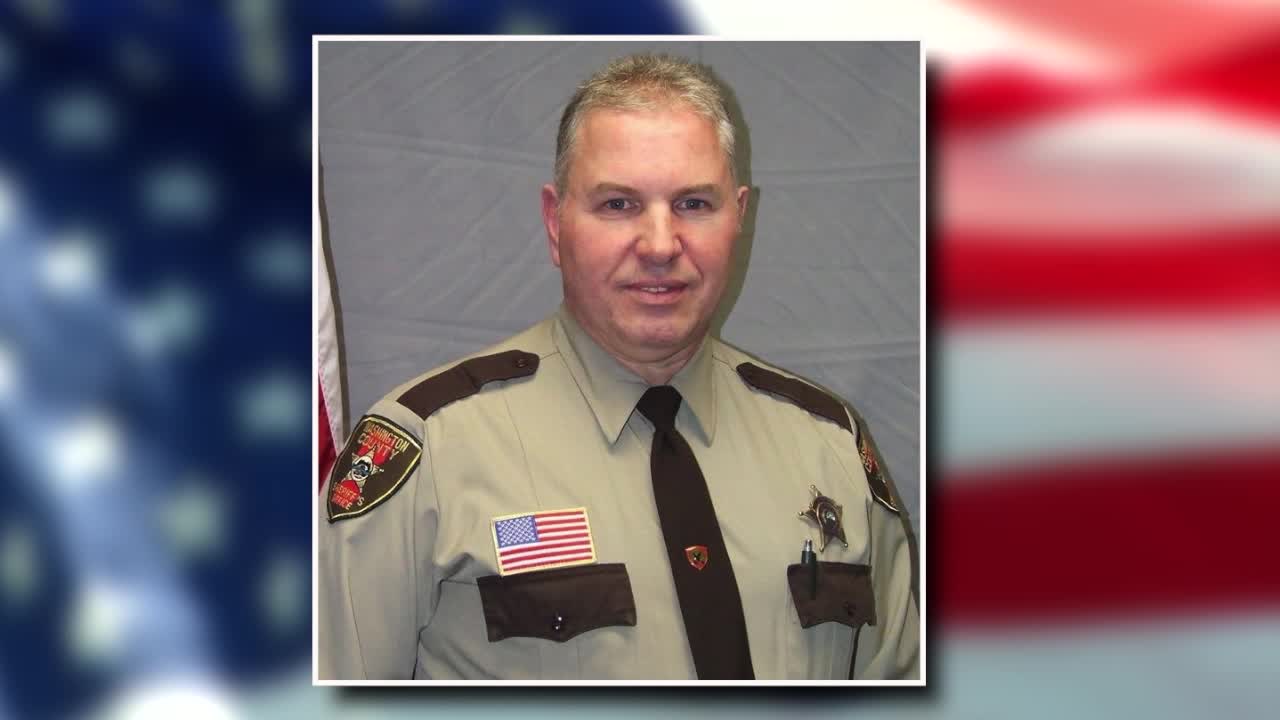Appeals court rules spouses of officers who die by suicide are entitled to death benefit
The Minnesota Court of Appeals found that a surviving spouse of a public safety officer who dies by suicide is “entitled to the death benefit for survivors of officers ‘killed in the line of duty’ if the officers death resulted from post-traumatic stress disorder from the job”, according to the court’s opinion.
For more than 30 years, Jerry Lannon protected and served the community, including since 1999, as a Deputy Sheriff in Washington County.
“Jerry always loved his job, he loved going to work, in the last few months of his life, it completely turned, and he was dreading going to work,” said Cindy Lannon, Deputy Lannon’s wife.
58-year-old Deputy Lannon died by suicide in November 2018.
“They see things regularly that if we saw one of those things in our life time, we’d be affected by it for the rest of our lives,” Cindy Lannon said.

Deputy Jerry Lannon died by suicide in 2018.
The emotional toll of the job, Cindy said weighed on Jerry.
After his death, she applied to the Minnesota Department of Public Safety for death benefits.
In court papers, she asked his death “…be deemed “duty-related” because his suicide was due to job-related PTSD.”
Jerry’s death certificate lists depression and PTSD as “contributing conditions” to his death, according to court filings.
DPS denied her request, court filings mention their argument was based in part on “…the death of a public safety officer must have occurred while acting in the course or scope of duties as a public safety officer.”
An administrative judge, agreed as well, denying the family’s attempt for benefits.
The decision, was appealed to a higher court.
On Monday, the Appeals Court wrote in part “…a gray area exists with respect to the circumstances under which a public safety officer may be considered ‘killed in the line of duty’ …when a death is not ‘natural’ or ‘accidental.'”
The court decided the death-benefit statute “…is broad enough to encompass a death by suicide resulting from PTSD caused by performing the duties peculiar to a public safety officer.”
“They affirmed that it’s a dangerous profession,” said Joshua Harrison, the Lannon family attorney. “This really helps establishes the definition of killed in the line of duty is a broad definition intended to recognize all those dangers they face for us — whatever form those dangers may take.”
DPS told 5 EYEWINTESS NEWS a decision has yet to be made if they’ll appeal to a higher court.
“We continue to share our sympathies with the family of Washington County Sheriff’s Deputy Jerome Lannon. We take seriously the mental and emotional health of our state’s emergency responders and deaths resulting from post-traumatic stress disorder,” said Minnesota Department of Public Safety Commissioner John Harrington in statement to 5 EYEWITNESS NEWS. “It is for this reason that we have spent the better part of 2022 researching the issues, existing laws, and our federal partners’ responses, as we work to propose modifications to Minnesota’s statutes. Last legislative session, DPS proposed expanding the eligible circumstances for which families of first responders who die in the line of duty can receive death benefits to include cancer or post-traumatic stress disorder that is linked to their service.”
Cindy said she’s very thankful for the Washington County Sheriff’s Department support, and hope more law enforcement departments discuss mental health in the ranks.
“I’m tired departments being reactive after the fact, when these suicide deaths happen, can we just figure out how to be proactive to help these officers, as they are working,” she said.
Here is a list of suicide prevention and mental health resources:
- 988 Suicide and Crisis Lifeline at 988
- Crisis Text Line – Text MN to 741741 to connect with a trained crisis counselor to receive free, 24/7 crisis support via text message.
- Minnesota Department of Human Service’s adult mental health resources
- The National Alliance on Mental Illness (NAMI) – Minnesota
- Veterans Crisis Line at 988, Option 1 or by texting 838255
- Minnesota Farm and Rural Mental Health Helpline at 833-600-2670 or by texting “FarmStress” to 898211
If you believe someone is at risk of suicide, the U.S. Department of Health and Human Services suggests you:
- Ask questions about whether the individual is having suicidal thoughts.
- Call the U.S. National Suicide Prevention Lifeline at 988 or 1-800-273-TALK (8255).
- Seek help from a medical or mental health professional. If it is an emergency situation, take the person to a hospital.
- Remove any objects from a person’s home that could be potentially used in a suicide.
- Do not leave the person alone, if possible, until help is available.